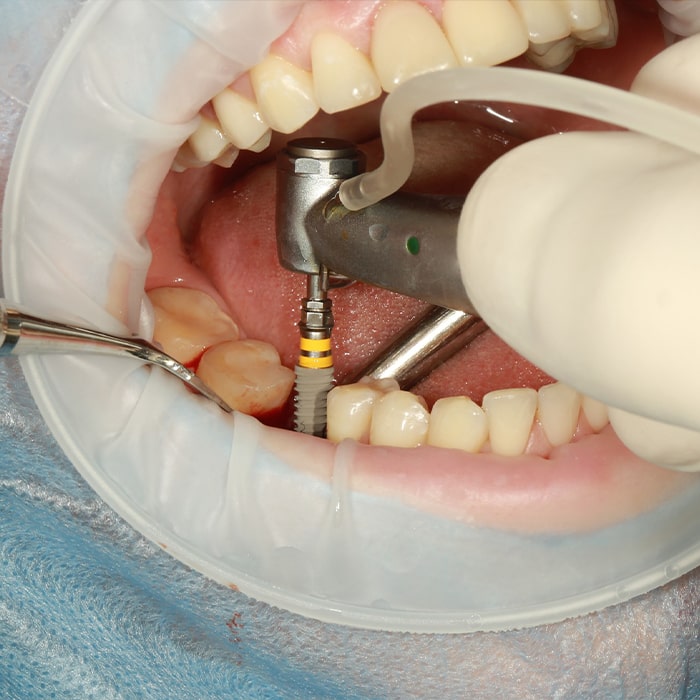Exploring Different Sedation Options for a Comfy Knowledge Teeth Extraction Experience
The usage of sedation during such treatments has ended up being progressively typical to minimize anxiety and discomfort. With an array of sedation alternatives offered, from regional anesthetic to general anesthesia, each technique offers varying degrees of relaxation and pain control.
Local Anesthetic
Local anesthesia is a typically utilized approach for numbing certain areas of the mouth during knowledge teeth removal treatments. By administering a neighborhood anesthetic, such as lidocaine, a dental professional can make certain that the client continues to be comfortable and pain-free throughout the extraction process. Regional anesthesia works by briefly blocking the nerves in the mouth, preventing them from sending out pain signals to the brain. This allows the dental expert to execute the removal without creating any discomfort to the patient.
Among the main advantages of local anesthesia is its targeted numbing effect, which implies that just the certain location being treated is influenced. This local strategy decreases the risk of systemic adverse effects and allows for a quicker recovery post-procedure. In addition, regional anesthetic is thought about to be a risk-free and regular practice in dental care, with marginal threats involved when provided by a skilled specialist.
Laughing Gas
Nitrous oxide, generally understood as laughing gas, is a form of sedation typically made use of in dentistry to aid clients unwind during oral procedures. This sedation option permits the client to remain receptive and aware throughout the treatment while feeling at ease and comfortable.
Once the mask is gotten rid of, the effects of the gas wear off quickly, allowing people to resume their typical activities without remaining sedative results. Nitrous oxide is appropriate for clients of all ages, making it a functional sedation choice for wisdom teeth removals and other oral treatments.
Oral Sedation
Oral sedation, a medicinal method employed in dentistry, entails the management of sedative medications by mouth to induce a kicked back state during oral treatments. This form of sedation is frequently made use of for clients undergoing wisdom teeth extraction to reduce anxiousness and pain. The medicines recommended for oral sedation come from a class of medications called benzodiazepines, which have sedative, anxiolytic, and amnesic homes. Typically, the patient takes the recommended drug before the treatment, allowing sufficient time for the sedative impacts to take hold.
One of the key benefits of oral sedation is its ease of administration. Unlike intravenous sedation, dental sedation does not require injections or needles, making it an extra comfortable option for individuals with a worry of needles. In addition, dental sedation is taken into consideration reliable and risk-free when provided by experienced dental specialists. It is crucial for clients to comply with pre-operative directions supplied by their dental practitioner, such as refraining from eating or drinking prior to the procedure to ensure the sedative medication works as intended.
IV Sedation
Provided intravenously by qualified doctor, IV sedation is a powerful technique utilized to induce a regulated about his state of deep leisure and unfamiliarity throughout dental procedures. Unlike oral sedation, which can be unforeseeable in its effects, IV sedation enables specific control over the level of sedation, making it an ideal choice for complex procedures like wisdom teeth removals.
During IV sedation, a sedative medication is delivered directly into the bloodstream via a capillary, enabling it to work rapidly and efficiently. This technique makes certain that the client continues to be uninformed and comfy of the procedure while still maintaining vital features such as breathing and heart price.
One of the primary benefits of IV sedation is its capacity to offer a deeper degree of sedation compared to various other methods, making it especially ideal for people with high levels of anxiety or those undertaking comprehensive dental work (wisdom teeth removal aspendale). Furthermore, the effects of IV sedation usually disappear progressively after the treatment, lowering the probability of grogginess or sticking around side impacts. Generally, IV sedation supplies a secure and efficient alternative for making certain a comfortable and hassle-free experience throughout wisdom teeth removal

General Anesthetic
Having reviewed the advantages of IV sedation for knowledge teeth extraction, the usage of basic anesthetic supplies a different choice for people requiring a deeper level of unfamiliarity throughout dental treatments. General anesthesia induces a controlled state of unconsciousness, ensuring the person feels no discomfort or discomfort throughout the extraction process. This technique is especially valuable for individuals with extreme dental stress and anxiety, facility medical needs, or those going through numerous removals at the same time.
General anesthetic is hop over to here administered by a qualified anesthesiologist who carefully keeps track of the individual's important signs throughout the procedure. It includes using intravenous medications or breathed in gases to induce a state of unconsciousness. While under basic anesthetic, the person will not recognize the surgical procedure, experience any discomfort, or have any type of recollection of the treatment later.
Although basic anesthetic is safe when administered by certified professionals, it lugs a somewhat greater threat compared to various other sedation choices - wisdom teeth removal aspendale. Patients thinking about basic anesthesia for knowledge teeth removal must talk about the possible risks and benefits with their useful source dentist or dental surgeon to make an educated choice based upon their specific requirements and medical history

Verdict
To conclude, numerous sedation alternatives are readily available to make certain a comfy knowledge teeth extraction experience. Local anesthesia is typically used for numbing the specific location, while nitrous oxide provides leisure and discomfort relief. Dental sedation and IV sedation offer much deeper degrees of relaxation, depending upon the individual's requirements. General anesthesia can be used for more intricate situations. It is very important to speak with your dentist or dental surgeon to identify the most suitable sedation alternative for your procedure.
Nitrous oxide is appropriate for people of all ages, making it a functional sedation choice for knowledge teeth extractions and various other dental treatments.
